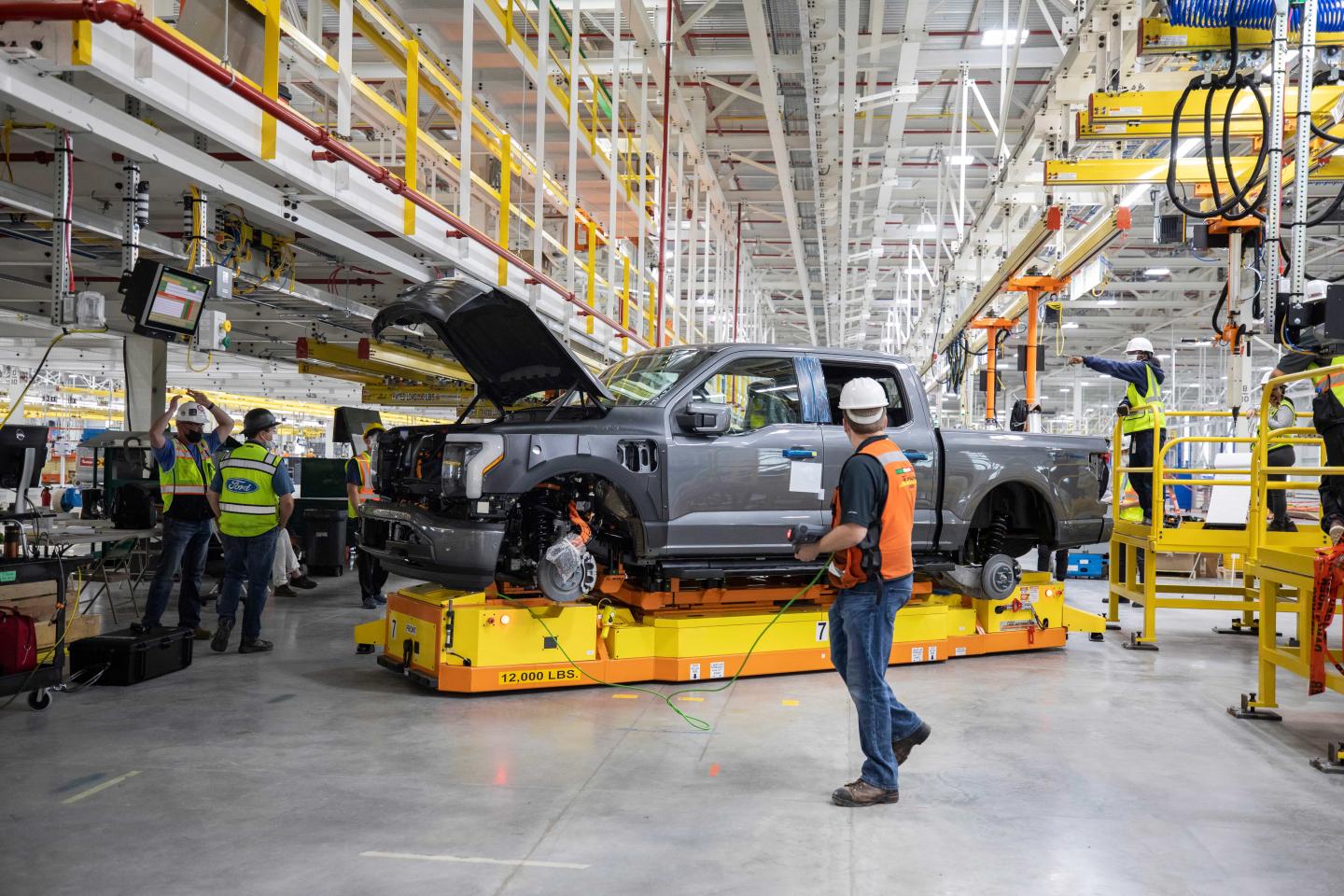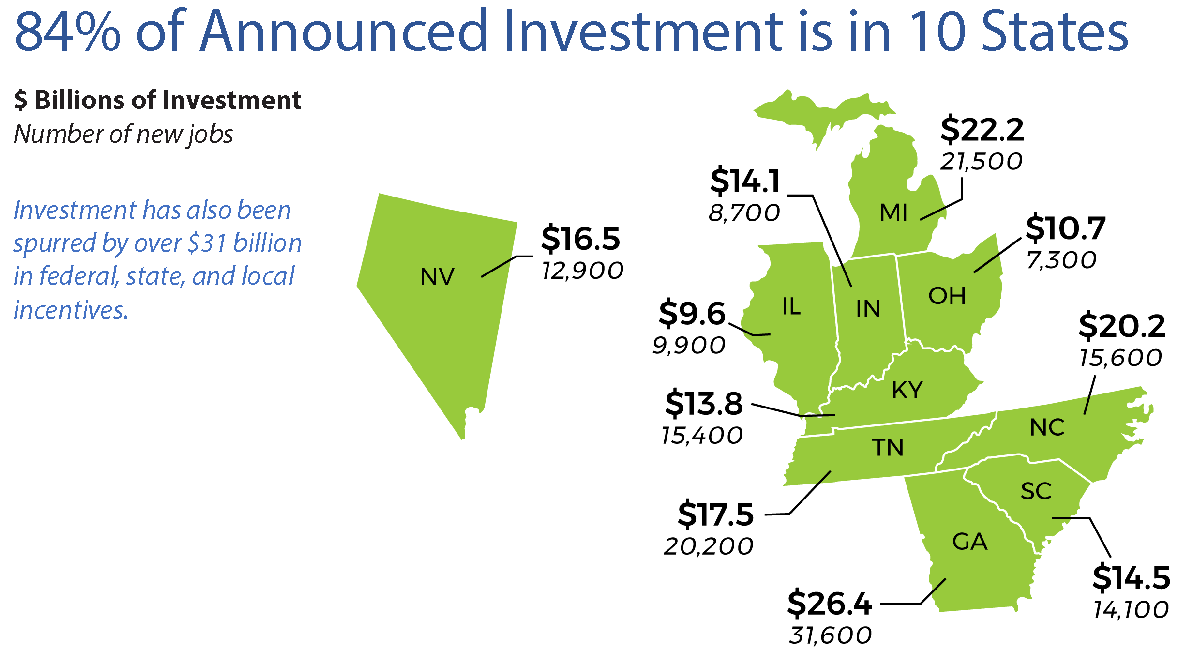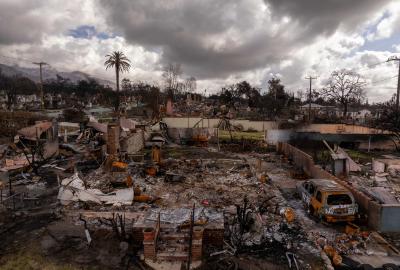Clean car jobs are booming, new report finds
Federal investments in clean, electric vehicles are supporting the creation of nearly 150,000 new jobs, a report has found.

The new jobs include building clean cars, trucks and buses, as well as batteries and other components. The investments are also expected to support more than 825,000 jobs in the wider economy, such as at raw-materials suppliers, and at businesses in communities where the new and expanded manufacturing facilities are located.
The report, published by Environmental Defense Fund and the consulting firm WSP, looked at corporate electric vehicle investments since November 2021, when President Biden signed the Bipartisan Infrastructure Law.
Subsequent federal investments have included more than $2 billion in upfront discounts for people buying electric vehicles. These investments also support high-speed charging in all 50 states and tax credits for manufacturers to retool existing factories and build new ones to produce electric cars.
- This resurgent Pennsylvania steel town is winning at football and clean energy
- Electric vehicle sales and satisfaction continue to rise
The investments are helping car and truck manufacturers to compete in the rapidly growing U.S. and international clean vehicle market. In 2024, clean cars, trucks and buses accounted for 20% of new vehicle purchases worldwide, according to the International Energy Agency, which projects significant growth in the global market.
"Electrification is transforming personal mobility,” David Schwietert, chief government affairs and policy officer at the Alliance for Automotive Innovation, told congressional leaders in late July. The Alliance is a trade group representing U.S. and international auto manufacturers and suppliers. “It’s rewriting global supply chains, rebuilding the domestic industrial base, creating jobs and underpinning American economic and national security in fundamental ways.”
Environmental news that matters, straight to your inbox
More than three-quarters of existing and announced clean car manufacturing jobs are in congressional districts represented by Republicans, the EDF/WSP report finds. Of the 25 congressional districts with the most new jobs, Republicans represent 19, with nearly 110,000 total jobs announced.

There has also been significant private investment in clean car manufacturing. Since November 2021, corporations have announced they will put more than $165 billion into building and retooling factories across the U.S.
"Federal investments have given companies the confidence they need to ramp up manufacturing to meet growing consumer demand,” says Ellen Robo, a transportation and clean air policy expert at Environmental Defense Fund.

Just five years ago, clean, electric vehicles represented only a sliver of U.S. new car purchases. But by the end of 2024, they were expected to top 10% of new sales. As of this month, there are at least 57 models of clean, electric vehicles for sale in the U.S., with an additional 20 slated for the coming year.
In 48 out of 50 states, clean, electric cars are now cheaper to own and operate than gas-powered vehicles, according to auto analytics firm J.D. Power.
But these job-creating federal clean car investments could be at risk under the incoming Trump administration. Even though there is no federal clean car mandate, on the campaign trail, Trump promised to “end the electric vehicle mandate on day one.” Federal subsidies for oil drilling — totaling $5.2 billion in 2023, according to one estimate — are not on the chopping block.
“For America to remain competitive and prosper while reducing its climate pollution, the only path forward is a swift and urgent transition to abundant clean energy,” says Amanda Leland, EDF’s executive director. With federal investments in clean cars, trucks and buses, nearly 150,000 workers across the U.S. will see the benefits of that transition firsthand.

